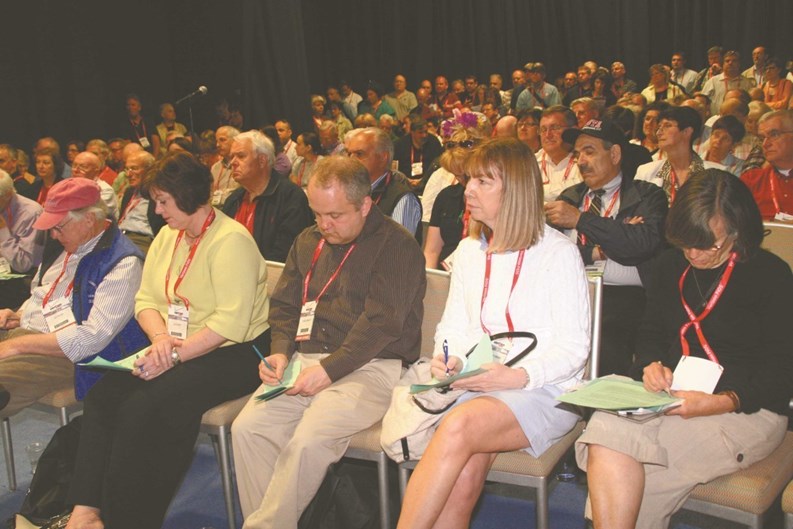The goal is to be an informed board member. For both new and seasoned board members, however, there are countless challenging topics requiring specific knowledge. With new regulations and legislation on tap, it is imperative that board members understand the various nuances of board service, an approach best supported by continuing education.
“Most board members are not experts in real estate or property management,” says Dan Wurtzel, president of Cooper Square Realty, Inc. in Manhattan. “Boards are comprised of professionals from different fields so their knowledge might be in finance, law or engineering and while all that experience is good, it’s a different business model.”
This varied business model plays a significant role; it’s the organization’s lifeblood. Without proper oversight and adherence to protocol, rules and laws, an otherwise well-intended board can place its members, shareholders and unit owners/shareholders in peril.
The Learning Curve
The learning curve is often the hardest for new board members who have little experience not only tackling policy issues but interacting with other board members and understanding how to have their voice heard. “Board members should look to develop and enrich their communication, negotiation and organizational skills,” says Maria Rodd, executive director for the Hudson Valley chapter of Community Associations Institute (CAI). “These are not only invaluable in being good board members but also in everyday life.”
Greg Carlson, executive director of the Federation of New York Housing Cooperatives & Condominiums (FNYHC) and owner of Carlson Realty Inc., located in Forest Hills, Queens, says all members should be familiar with the underlying documents to their respective building. These include reading bylaws, house rules, the certificate of incorporation and proprietary leases. “Some people are shy and don’t want to ask questions because they are afraid people will think they are stupid,” says Carlson, who has several management accreditations, noting that new board members should team up with an experienced board member. “With a mentoring process, when it’s one-on-one it is more comfortable to ask questions as opposed to being in a room with five to twelve people,” he adds.
Wurtzel explains that Cooper Square Realty takes proactive measures to ensure that board members are literally and figuratively on the same page. “We get a benefit from educating our boards because it becomes an asset,” says Wurtzel, adding that they represent more than 400 organizations in the New York City metropolitan area. “The board wants the information. We put out a board booklet within thirty days of the annual meeting, but it’s up to the individual board member to look through the book.”
The booklet, he notes, explains all the things a rookie board member needs to know including: how to be a good board member, fiduciary responsibilities, previous years’ financial reports and minutes from meetings, management reports, pending projects and pay action lists. “They have this information at their fingertips to educate themselves as to what is going on,” he says.
Back to School
Mark Twain wrote “I have never let my schooling interfere with my education.” For many board members this also rings true because so much is learned through the experiences of sitting on a board aggregating and analyzing information and ultimately rendering a decision on an issue that impacts the organization. However, it is equally important to keep your pencil sharpened and be willing to hit the books.
“An organization like Community Associations Institute (CAI) was formed to educate community volunteers,” says Frank Socci Jr., CPM, principal and the director of property management for NAI Global, Long Island. While he notes that many courses and seminars are free because they are sponsored by vendors and management companies; it isn’t always easy convincing board members to attend.
“It’s very difficult sometimes. Many board members are very busy, but if information regarding seminars and vendor events are shared with colleagues it can encourage them to attend,” Socci continues. “Many of these events are given in informal or social networking formats that make them very inviting.” Not all courses are free, counters Rodd. “Course fees range from $50 to $300 and most often are paid for by the association as it is a real benefit to the professional management of the community.”
Carlson says “an effective board is an educated board.” This he adds is the motto and mission of The Federation of New York Housing Cooperatives and Condominiums (FNYHC), an education and advocacy group for co-op and condo boards. “With education and a better understanding of your building you can effectively question your management company,” he says.
A major area of weakness for many board members is being able to understand financial reporting. While this issue is top of mind on the heels of the recession, it has been an ongoing sore spot for countless years. “Some board members can’t even read a financial report. That is sad because that is their bread and butter and it goes out to the world. There is a great need for continuing education in this area,” says Carlson.
Rodd suggests turning to CAI and the National Board of Certification for Community Association Managers (NBC-CAM), both of which offer educational programming, dinner networking/seminars, social networking, trade shows and other events. “Courses are not difficult, but require commitment and common sense,” she says. “It is absolutely not necessary to enroll the entire board. One or two representatives can take classes and report back to the board.”
To her point, industry analysts agree that it is often best to split up board members for different areas of expertise. For example, three board members may be assigned to attend one conference, share notes and return to the board with collective findings and serve as board leads on related issues. Aside from pointing to publications such as The Cooperator for education, Socci notes that the Long Island chapter of CAI also hosts many free educational events.
“We work with our boards so they are not complacent and are not simply doing things to satisfy shareholders when it’s not in the best interest of the building itself,” says Wurtzel. “So it’s important to have the knowledge to share information with shareholders and unit owners as to what is going on and when it makes sense, they accept it.”
New Legislation
Even seasoned, experienced board members that might be well-versed in procedures and protocols have to deal with new legislation that will require a new knowledge base. In 2011, the focus has been “green” legislation—specifically New York City Local Law 84. The law, which went into effect May 1, 2011 and has an extended deadline of August 1st, focuses on improving the energy performance of approximately 16,000 buildings including city-owned structures and large-scale commercial, mixed-use and residential buildings.
Buildings exceeding 50,000 square feet are legally required to benchmark their energy performance. While Mayor Michael R. Bloomberg and the administration have allowed a three month grace period for compliance, those buildings that do not comply by August 1st may have to pay quarterly fines until the issues are resolved.
“We knew what was happening with Local 84 and we have an energy company working with Cooper Square Realty on energy initiatives so when the legislation passed it was an easy transition for us to give information to our clients on what they need to do in order to comply,” says Wurtzel.
Carlson adds that this law is impacting those buildings with 50 or more units. “August is right around the corner and while there is proposed legislation to push it back further, it hasn’t seen the light of day yet.”
According to another bill passed by the New York City Council, Nos. 4 and 6 heating oil will be phased out when buildings’ Certificates of Operation expire. Buildings burning No. 6 oil will have to convert to No. 4, No. 2 or natural gas. Buildings that install new boilers can only install those that burn No. 2 oil or natural gas. Additionally, by October 2012 all heating oil must contain at least 2 percent biodiesel.
The legislation has not been met with open arms. “There has been a great deal of push back. Whenever your costs go up it comes out of the residents’ pockets. That along with the dramatic rise in real estate taxes is pushing out the middle class and making it unaffordable to live in the city, especially those on fixed incomes.”
Rodd explains that other topics specific to New Yorkers include insurance as it relates to condos, co-ops and HOAs. “It is different in every situation and absolutely requires commitment from at least one board member,” she says. “Boards need to understand the needs of the community, as it differs from individual owners, and of the board—directors and officers liability,” she continues. “If there isn’t someone on the board who brings this knowledge and experience, then education is strongly suggested.”
Obtaining information from vendors is a common practice. It is important to speak with a few different vendors in order to make informed decisions but often they will be more than happy to offer guidance and education on topics. Socci, for example, says that when undertaking a capital improvement project, consult with your insurance broker. “Obtaining current certificates of insurance from all vendors that work at the property naming the co-op, condo, or HOA as additional insureds are essential,” he says.
From a management perspective, Wurtzel says it’s important to get as far ahead of an issue as possible so there is time to make smart decisions. “When there are new issues on the horizon like energy—Local [Law] 84, we present to our buildings a program on how to handle it. More and more board members are realizing that things are changing quickly and there is no benefit remaining stagnant.”
The fact remains that in order to be compliant and meet regulations; more money might be required, whether it is for education or for upgrades. “If you defer a maintenance increase or common charge to keep your shareholders or units holders at bay, you’re just putting off for a rainy day what will be a larger increase and from that you will have a more officious response,” Wurtzel says.
Being on a board is often a thankless, hard-working task. But don’t be discouraged, being part of the governance of your own building community can be a rewarding proposition if you take the time to do it right and with the right knowledge base behind you.
W.B. King is a freelance writer and a frequent contributor to The Cooperator and other publications.







Leave a Comment